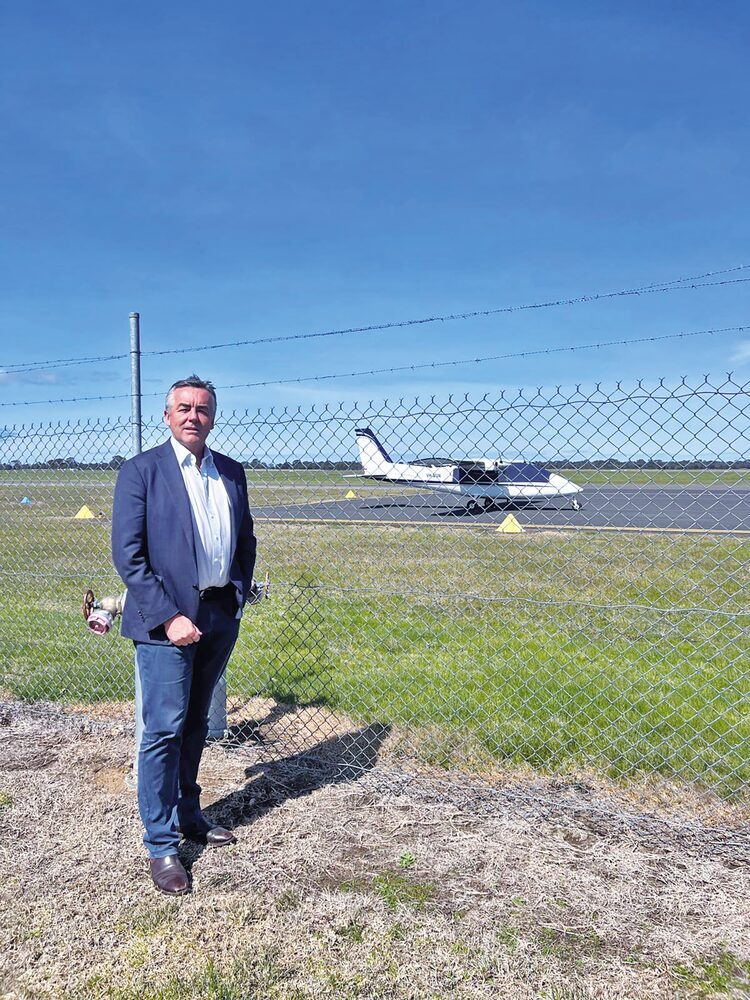Extreme environmental laws are hampering Gippsland infrastructure projects, risking lives and adding to the cost of living, according to local MP Darren Chester.
Speaking in Federal Parliament, Mr Chester blamed the excessive restrictions on clearing native vegetation on transport projects for adding up to 30 per cent to the cost of construction.
“In the middle of a cost of living crisis, Gippslanders are paying more and receiving less from the Labor Party at state and federal level, particularly when it comes to much-needed upgrades to our transport network,” Mr Chester told Parliament.
“We are expected to drive cars that are roadworthy, but the government is not providing roads that are carworthy, and it’s costing lives and money in regional areas.
“On top of the bureaucratic incompetence and a lack of urgency by the relevant Ministers, the cost of infrastructure projects in regional Victoria is blowing out by millions of dollars every week, thanks to ridiculous environmental laws which place a huge cost burden on public authorities.
“The safety of the community is falling a distant second to the need to purchase ‘native vegetation offsets’ and comply with stringent environmental regulations, even when roads or airport extensions are occurring within the footprint of the land specifically reserved for that purpose.
“In some cases, more than 30 per cent of the cost of a project is being absorbed by compliance with state and federal environmental laws.”
Mr Chester said the most recent examples of environmental laws adding to the cost of projects included moving the alignment of the Princes Highway duplication works, upgrading Mallacoota-Genoa Road and the Bairnsdale Aerodrome runway extension.
“All of these projects have been hit with extra costs because of native grasses or trees being removed from inside the area reserved for the purpose of the road or airport in the first place,” Mr Chester said.
“It’s even more extraordinary in Victoria now the Labor Party has banned the harvesting of native hardwood timber on public land.
“Not satisfied with an illogical decision to ban a sustainable and 100 per cent renewable industry, the State Government is still requiring more land to be locked up in vegetation offsets if a road authority has to remove trees to widen a highway.”
Mr Chester said the delays to projects could cost lives in the future.
“A planned extension and widening of the runway at the Bairnsdale Aerodrome is on hold because native grass was detected alongside the existing pavement,” he said.
“It could cost the local ratepayers several million dollars they don’t have to buy a separate piece of land as a vegetation offset in order for the project to proceed.
“Bizarrely, the airport extension is required to save human lives in an emergency situation.
“During the Black Summer Bushfires, the Bairnsdale Aerodrome was transformed into one of the busiest airports in the country with emergency services and the Australian Defence Force flying in personnel and supplies to help the community at a time of enormous need.
“Without the extended runway, the Bairnsdale Aerodrome won’t be fit-for-purpose in future natural disasters, and lives will be put at risk, thanks to some native grass you can find in a paddock next door.
“This environmental madness is tying up projects across our state, and taxpayers are footing the bill for infrastructure, which is costing more than necessary and running years late on planned construction timeframes.”












